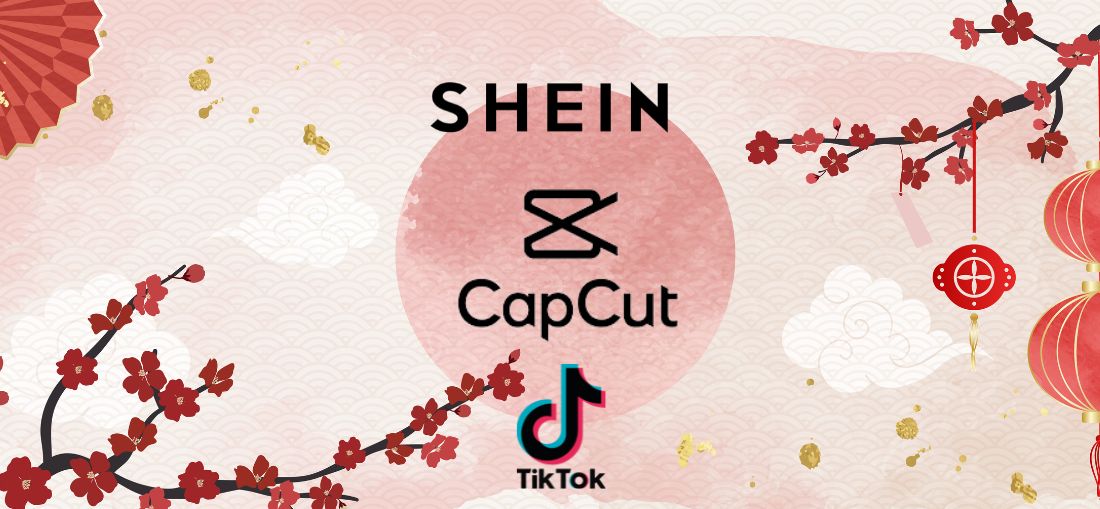In the last few months, TikTok has come under pressure from governments around the world. This is because lawmakers have become increasingly concerned by Beijing’s influence over the platform. With bans currently coming into force, what does this mean for China’s other popular apps? Before we decide, let’s first take a look at some of China’s most popular apps in the west.
CapCut
CapCut is an all-in-one video editing tool. In 2022, it was the fourth-most downloaded app globally (behind only TikTok, Instagram and WhatsApp).
However, although both TikTok and CapCut are owned by ByteDance, governments around the world have said very little about CapCut. The exception to this is the Indian government, which banned a number of Chinese apps and platforms (including CapCut) in 2020.
Lark
Lark is a workplace collaboration platform that launched in 2019. It’s the direct equivalent of a Chinese version called Feishu. However, these two platforms operate and store data separately and Lark is actually managed from Singapore. Lark is currently available in the US, south-east Asia and Japan. A European launch is also currently on the cards.
Lark targets multinational corporations and combines elements of Slack, Dropbox, Google Docs and Skype. It’s a minnow compared with ByteDance’s other products, but it’s part of a strategy to diversify the company’s offering.
However, although it is not currently the target of governments, ByteDance may soon find that Lark captures the attention of regulators. This is because it explicitly deals with the kind of proprietary data that western lawmakers and companies would want to keep secure. If the platform does launch in Europe as planned, it may soon garner extra (and perhaps unwanted) attention.
Tencent’s WeChat currently has more than 1.1 billion users. However, the vast majority of these are located in China, where the all-encompassing app is essential for communications, bookings, finances and even health monitoring. That said, the platform is also popular with Chinese nationals who now live abroad and want to keep in touch with family members back home.
Back in September 2020, then President Donald Trump sought to ban both WeChat and TikTok in the US. However, since then, President Biden has withdrawn these executive orders and has instead launched a national security reviews of apps created by companies with links to adversarial foreign governments such as China.
Unlike TikTok and CapCut, which are western versions of Chinese apps, WeChat is a Chinese-made app that’s also used in the west.
In 2021, WeChat said it had separated processes for its domestic Chinese users and those who log in with a foreign phone number. But in September 2022, overseas users received pop-up messages warning them that “personal data [including] likes, comments, browsing and search history, content uploads, etc.” would be stored on Chinese servers.
Shein
Shein is now the world’s largest fashion retailer. Last year, it also became the most-downloaded fashion and beauty app in the US. The majority of its users are attracted to the platform because the products are incredibly cheap. However, the company’s app also gamifies the shopping experience and makes it a lot more engaging for customers.
As a result, despite cheap prices, the company’s revenues are huge. In 2022, it raked in $22.7bn (£18.2bn), putting it in the same league as established retailers like H&M and Zara.
Temu
Temu is an e-commerce platform that sells everything from wireless earphones to cat toothbrushes. Although Temu only launched in the US in September 2022, it was the most popular app in the country in January 2023.
Temu is a subsidiary of PDD Holdings Inc, a Chinese company that also owns the Chinese internet retailer Pinduoduo, which is a dark horse in the Chinese e-commerce market.
The company’s inventory is a core part of its business model: it prioritises lightweight products to reduce cargo costs, and ships to consumers directly from factories in China. This means the company can keep prices incredibly low – a cat toothbrush (if you ever need one) costs less than $0.50. With prices this low, US customers are increasingly willing to wait out the 1-2 weeks that delivery usually takes.
AliExpress
AliExpress is the online marketplace of tech giant Alibaba. Last year, it was the third-most popular marketplace app in the UK with 1m downloads, behind only Amazon and eBay.
However, although it’s undoubtedly popular, AliExpress has failed to capture the western imagination in the same way as Temu and Shein.
Why does this matter?
As we can see, although TikTok is under increasing regulatory focus, it’s by no means the only popular Chinese app in the west. As a result, any legislation that impacts TikTok may ultimately have a staggering reach.
That said, in theory, many of the accusations that have been levelled against TikTok are not applicable to other Chinese apps and e-commerce apps that are traditionally less controversial. Similarly, shopping apps that are dependent on physical supply chains are also less able to change or mask their Chinese links.
However, US lawmakers particularly believe that any Chinese-owned apps could be vulnerable to data privacy breaches or interference from the Chinese Communist Party. Plus, some analysts have pointed out that the US does not have comprehensive data privacy laws, meaning that users of any apps have little control over how their data is used.
So, although shopping apps like Shein and Temu perhaps do not deserve the same level of scrutiny as media apps like TikTok, it appears likely that US lawmakers will at least try to subject them to a similar level of scrutiny. If they do, the impact of any new legislation aimed at Chinese companies could be incredibly wide-ranging, particularly if bans do materialise.
Author spike.digital